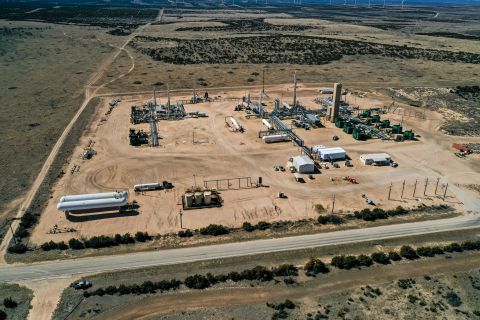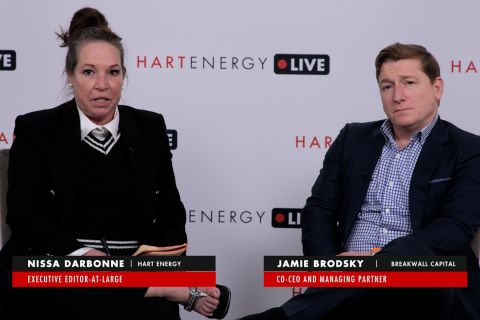By Kwei Quartey, M.D. The world has an ambivalent relationship with sustainable energy. We just love our fossil fuels and seem unwilling or unable to change. For some like the nation of Ghana, the longer the United States and other heavily consuming countries maintain their energy status quo, the better. Lying along the West African coast, Ghana is the latest entrant to the club of African oil producers. In 2007, Britain’s Tullow Oil and its partners made history by discovering huge reserves of offshore oil in the Jubilee field off Cape Three Points, the southernmost tip of Ghana. In very short order -- only 40 months -- Tullow began oil production in December 2010. In January 2011, Ghana sold its first batch of crude oil to Exxon Mobil Corp. There is reportedly a whole lot more where that came from, and it’s the highly sought-after light, sweet variety. For fossil-fuel lovers in the United States, the longer Ghana can help us maintain our energy status quo, the better. According to Ghana’s Minister of Energy, 13 different petroleum operations are in different stages of oil exploration off Ghana’s shore, and more companies are seeking production rights all the time. The British, Dutch, Chinese, Italians, Russians and Americans are all salivating at Ghana’s front door. Ghana has long been a leading cocoa exporter, but cocoa and its end product chocolate do not elicit the intensity of lust that oil does. Although producing and exporting large amounts of petroleum is a first for Ghana, this focus on its natural resources is not new. Going back as far as 1471, Portuguese explorers arriving at Ghana’s coast found so much gold between the Ankobra and Volta Rivers, they called the area La Mina or The Mine. La Mina was later corrupted to “Elmina,” as in Elmina Castle, which the Portuguese built between 1482 and 1486 in order to trade in gold, ivory, and, of course, slaves. If the Portuguese supposed Ghana’s coast fever belonged solely to them, they were wrong. Following in their path, other Europeans made tracks to this glittering place called La Mina: the Dutch (who kicked out the Portuguese), Brandenburg-Prussians, British, Danes and Swedes. This modern-day feverish rush to Ghana draws an uncomfortable parallel to the ancient one. Only the coveted material has changed: yellow gold then, black gold now. The centuries-old history of Western plunder makes many Ghanaians worry that this latest natural resource, oil, will become a familiar story of money for the few with little benefit for the many. After all, living conditions in Ghana’s gold-mining towns reflect nothing of the riches supposedly associated with the shiny, tantalizing metal. Many Ghanaians have already been disappointed to find that the oil industry is not itself a large-scale employer. With the exception of the most menial of jobs performed on a rig, particularly an offshore rig, all positions involve levels of skill and training that can take several years to attain. The highest supervisory posts are still largely in the hands of white expatriates. Ghanaians hope this situation will change, but everyone knows that change won’t come overnight. Oil production has already had an impressive effect on Ghana’s economic data. According to Economy Watch, Ghana was the world’s fastest growing economy in the first half of 2011 with a GDP growth rate of 20%, which is 6% higher than the first runner-up, Qatar. But reminiscent of the “99-Percenters” of the Occupy Wall Street movement who wonder why they can’t find a job while bankers sit comfortably on their stash of cash, Ghanaians want a 20% GDP growth rate to mean something to them in real terms. They want to see improvements in buying power, employment, goods and services, infrastructure, schools, hospitals and their general standard of living. According to UNICEF, in 2009, Ghana’s gross national income per capita was $700 and life expectancy was only 57 years. In 2008, 74% of rural populations were using “improved” drinking water and only 13% were using improved sanitation facilities. The Portuguese built Elmina Castle centuries ago, but it still stands today and is a powerful metaphor for how “striking it rich” can mean the creation of an exclusive, powerful and protected group of people who help themselves to wealth and never share it. For many, whether in Ghana, the United States or elsewhere in the world, the time has come to dismantle the castle -- physically and metaphorically. Kwei Quartey is the author of “Wife of the Gods,” “Children of the Street,” and the upcoming “Men of the Rig,” a novel set in Ghana with the oil industry as a backdrop.
Recommended Reading
Midstream M&A Adjusts After E&Ps’ Rampant Permian Consolidation
2024-10-18 - Scott Brown, CEO of the Midland Basin’s Canes Midstream, said he believes the Permian Basin still has plenty of runway for growth and development.
CEO: Breakwall Providing Capital as RBLs ‘Materially’ Decrease
2024-10-09 - Breakwall Capital is stepping in to bridge the gap from the historic days of reserve-based lending, Breakwall Managing Partner and co-CEO Jamie Brodsky said at Hart Energy's Energy Capital Conference in Dallas.
SM Energy Adds Petroleum Engineer Ashwin Venkatraman to Board
2024-12-04 - SM Energy Co. has appointed Ashwin Venkatraman to its board of directors as an independent director and member of the audit committee.
BP Profit Falls On Weak Oil Prices, May Slow Share Buybacks
2024-10-30 - Despite a drop in profit due to weak oil prices, BP reported strong results from its U.S. shale segment and new momentum in the Gulf of Mexico.
Baker Hughes Wins Contracts for Woodside’s Louisiana LNG Project
2024-12-30 - Bechtel has ordered gas technology equipment from Baker Hughes for the first phase of Woodside Energy Group’s Louisiana LNG development.





